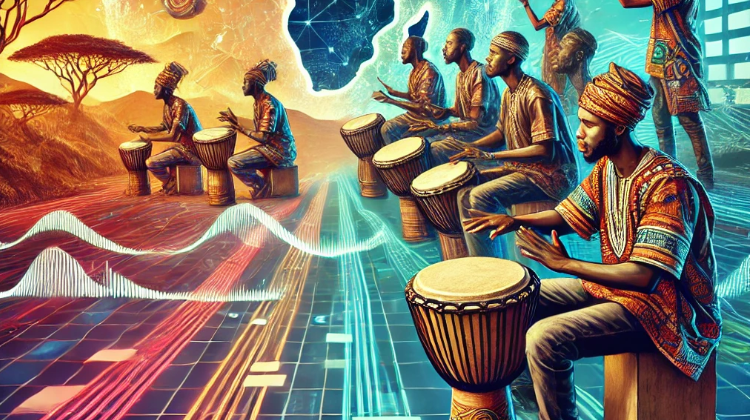
Across Africa, a sonic revolution is unfolding. Contemporary musicians are reviving and reinterpreting indigenous sounds, blending them with modern genres to create innovative, globally recognized music. From Afrobeats to Amapiano, these artists are infusing their work with the rhythms, melodies, and instruments of their ancestors, ensuring that Africa’s musical heritage remains vibrant and influential.
For centuries, African music has been deeply connected to communal life, spirituality, and storytelling. Traditional instruments like the kora, balafon, talking drum, and mbira carried histories and identities, shaping cultural narratives. Today, artists are reintroducing these instruments into contemporary music landscapes, fusing them with electronic production, hip-hop beats, and jazz harmonies to create compelling new sounds.
Nigerian artist Burna Boy, for example, incorporates Yoruba percussion and Pidgin-infused lyrics into his globally acclaimed Afrofusion style. Similarly, South African producer DJ Maphorisa merges Amapiano’s deep house beats with kwaito and indigenous drumming, crafting rhythms that are as ancestral as they are cutting-edge.
Beyond instrumentation, many artists are also reviving indigenous languages and storytelling traditions within their music. Sho Madjozi, known for her vibrant Tsonga lyrics and fusion of gqom beats, celebrates her heritage in ways that resonate with both local and international audiences. Likewise, Sampa the Great weaves Bantu philosophy and Southern African storytelling into her hip-hop-infused tracks, proving that traditional wisdom can thrive in modern formats.
The global music industry is taking notice. Streaming platforms, international collaborations, and Grammy recognition have provided African artists with new avenues to share their heritage with the world. Beyoncé’s The Lion King: The Gift album prominently featured African artists like Wizkid and Tiwa Savage, introducing millions to Afropop’s rich textures.
At major festivals like Coachella and Afro Nation, African musicians showcase their ability to innovate while staying rooted in tradition. This balance of authenticity and modern appeal makes their music not just entertaining, but also a cultural bridge between Africa and the world.
As technology advances, so does the ability to archive, sample, and repurpose traditional African sounds. Ethnomusicologists and producers are working together to digitize rare recordings, ensuring that ancient musical traditions remain accessible and influential. From AI-generated compositions inspired by indigenous beats to collaborations between griots and hip-hop artists, the future of African music lies in its seamless fusion of history and innovation.
The resurgence of traditional African sounds in contemporary music is more than a trend—it is a movement. It is a testament to the enduring power of African culture and an affirmation that even as global influences shape the continent’s creative landscape, the spirit of the ancestors continues to guide the beat.
Africa’s voice is rising, louder and prouder than ever, carried by the echoes of its past into the boundless possibilities of the future.



Leave a Reply